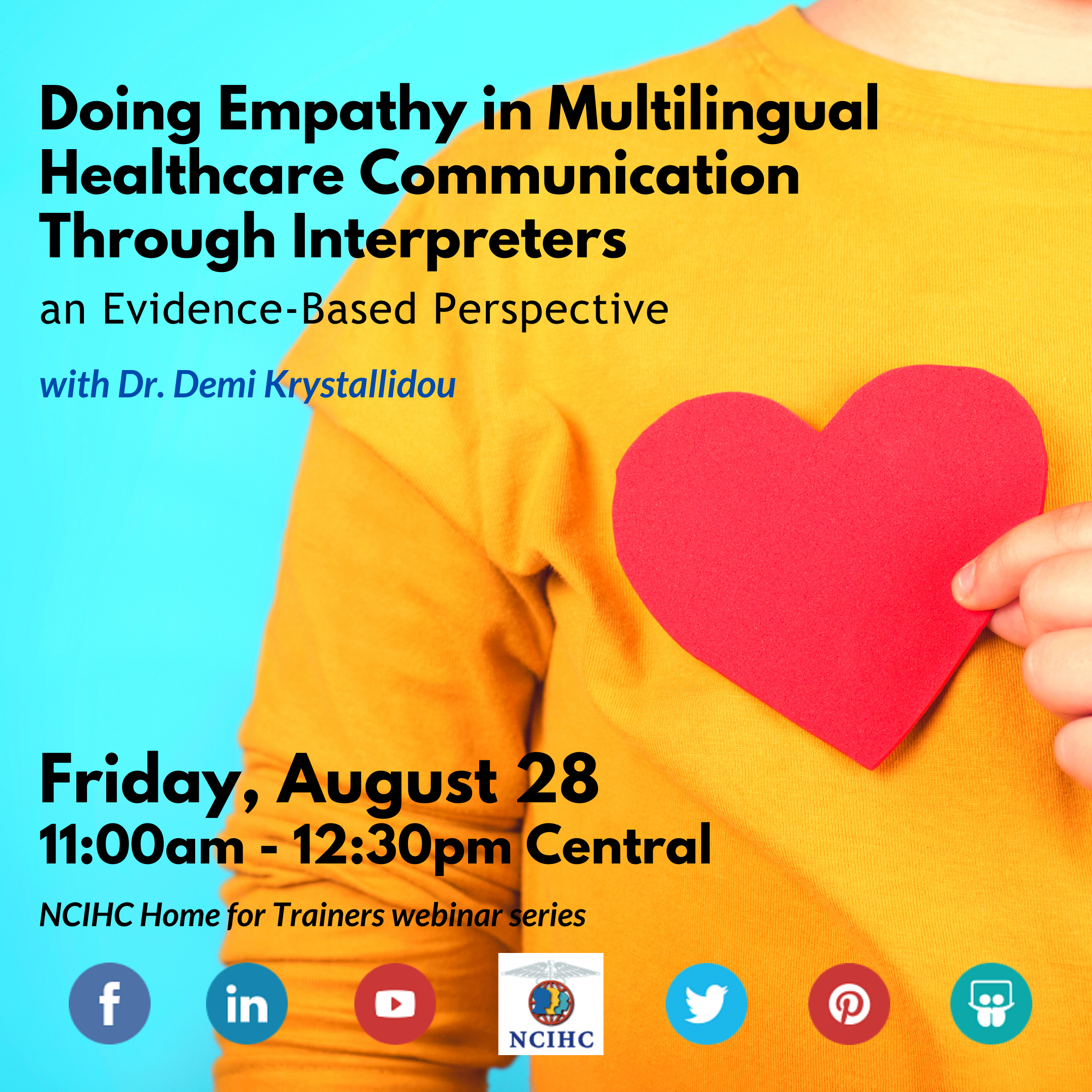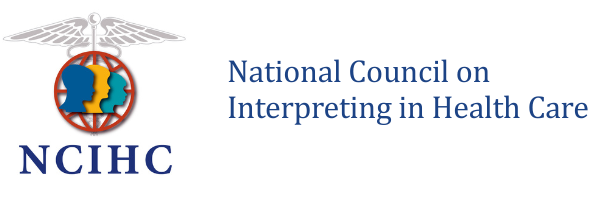|
Trainers Webinar # 43

This 90 minute live webinar took place on August 28, 2020 at 12:00 noon Eastern / 11:00 AM Central / 9:00 AM Pacific.
This webinar was recorded. The recording will only be available through the NCIHC Learning Center. Once the recording is available, individuals will need to submit a separate registration form to view the recording, including those who registered for the live broadcast. Recordings are free for NCIHC members and $30 for non-members.
Register to view the recording of this webinar by clicking on the link below.
NCIHC Members: free
Non-NCIHC Members: $30.00
(Become an NCIHC Member today!)
Continuing Education Approval:
CCHI for 1.5 instructional hours
This webinar is sponsored by

Doing Empathy in Multilingual Healthcare Communication through Interpreters
In this webinar we will look into the evidence that has emerged from the in-depth analysis of authentic video-recorded medical consultations and semi-structured interviews with patients, doctors and professional interpreters and we will discuss the ways in which this evidence can be translated into education and professional practice. We will begin with a brief introduction to empathic communication in (multilingual) healthcare communication and we will identify a number of factors that contribute to or hamper the co-construction of empathic communication in interpreter-mediated clinical encounters. We will do so by drawing on the actual patient-interpreter-doctor interaction and on their perceptions of it. At the end of the webinar participants will have gained a thorough understanding of the complexity of empathic communication in interpreter-mediated clinical encounters and will be able to make better-informed decisions at the level of interaction by reflecting on their own, the patients and clinicians’ communicative behaviors. Being able to effectively co-construct empathic communication in clinical encounters is of paramount importance as empathy is a basic component of therapeutic relationships, it has demonstrably improved patient enablement and doctor satisfaction, and it may be a precondition for patient-centered decision making.
Learning Objectives:
- Distinguish between facilitating and hampering communicative behaviors in the co-construction of empathic communication in interpreter-mediated clinical encounters.
- Reflect on the interpreter, as well as the patient and clinician’s communicative behavior in interaction in the co-construction of empathic communication in interpreter-mediated clinical encounters.
- Assess the impact of the interpreter, as well as the patient and clinician’s communicative behavior in interaction in the co-construction of empathic communication in interpreter-mediated clinical encounters.
- Demonstrate specific communicative and interactional strategies for co-constructing empathic communication in clinical encounters to interpreter students.
About the Presenter:

Demi Krystallidou is a postdoctoral research fellow at KU Leuven (Belgium). She specializes in multilingual healthcare communication. She is a trained conference interpreter and interpreter educator. She has published extensively in interpreter-mediated communication in healthcare. Her research focuses on empathic communication, interprofessional education, cancer communication and digital healthcare technologies in multilingual healthcare.
You may download the Webinar Policies HERE 
REDIRECT TO TRAINERS WEBINARS
|





